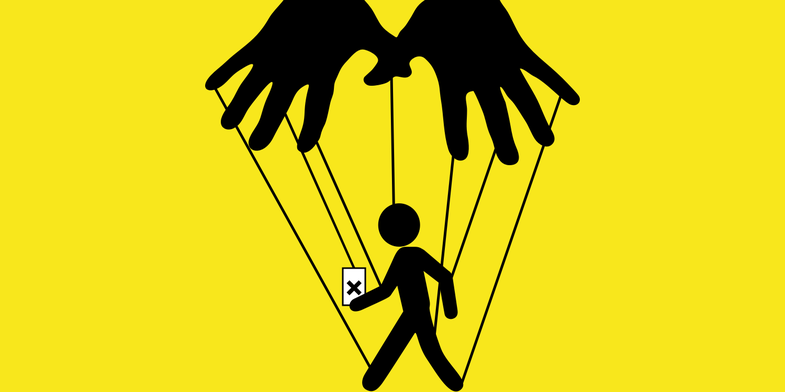
Addressing someone by saying "Don't take it personally" is quite common and is generally used with good intentions. It is no wonder that everyone gets nervous or does not welcome someone's opinion, so the phrase "Do not take it personally" is natural. But psychologists point out that in some cases, this phrase is a form of manipulation and dangerous.
They refer to "gaslighting" - a term that describes psychological abuse and manipulation, when a person makes someone else doubt their thinking, perception of reality and memories. People who experience this form of abuse may feel confused, anxious, and unable to believe in themselves.
Dr. Claire Jack, an Edinburgh-based therapist, says the phrase "don't take it personally" usually refers to a disturbing sign. For Psychology Today she stressed that these people, after getting hurt, react this way when they notice that someone is sensitive. Through this reaction - so saying "Do not take it personally - emphasizes Dr. Claire Jack, these people devalue someone else’s experience.
In the case of "gaslighting", the main problem with "you are dramatizing it in vain" or similar phrases is that, used in the wrong context, it can take away your ability to control your emotions. No matter how justified other people think they are your reactions, they exist just like that - they are yours. It is not up to anyone else to tell you how you feel, or how acceptable the feelings you are experiencing are.
Psychotherapist Stephanie Sarkis, author of "Gaslighting: How to Recognize Manipulative and Emotionally Abusive People," told Health that "after a while, you start to believe that they, the manipulators, are right." "The more it makes you feel insecure and question the reality, the more you will trust this person later. "Over time, you will eventually reach a point where self-esteem will be destroyed and you will no longer trust yourself."
These people, known as "gaslighters", are present in all walks of life, in many relationships and surprisingly it can be difficult to understand the toxicity of such a relationship. People who try to judge and control your emotions are always dangerous.

- Panic Attack vs. Anxiety Attack: What's the Difference?
- What it is and who experiences the most eco-anxiety
- How to solve the famous cube: 5 important benefits from it
- What is the halo effect, a new term for you, but which you experience on a daily basis
- Psychology of deception: Questions that liars discover
- Excessive and persistent thoughts: What you can do to ease them
- 5 signs of a boring person (ality)
Burimet: Health, Psychology Today





